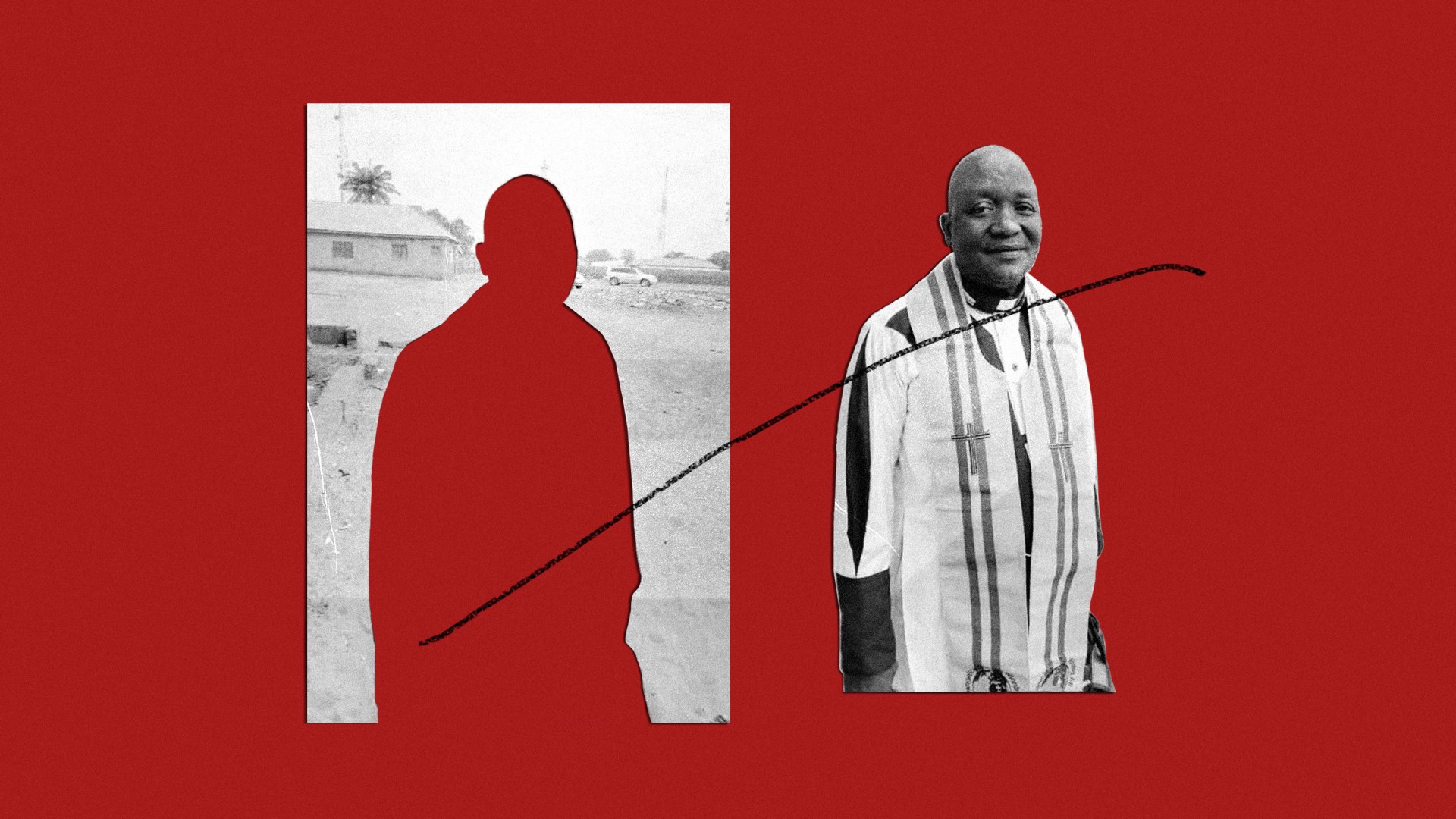Key Updates
October 14, 2025
James’s family learned that Audu Issa James died during the night on September 9. Theophilus said the bandits informed the family through a negotiator nearly a month later after the pastor’s death. The kidnappers claimed he went to sleep and didn’t wake up.
“He was diabetic and probably died from the pain of captivity and his underlying health issues,” Theophilus said. The bandits buried James at an unknown location. James’s family has sought police help, but Theophilus told CT they are unwilling to help.
“There is no closure for us,” he said. “Our only consolation is that his death was somehow peaceful.”
September 26, 2025
After dinner on August 27, pastor Audu Issa James bid his wife, Beshi, and two of his children good night. He then went to bed. By 11 p.m., barking dogs woke him.
Four gunmen stormed Ekati village in Kwara State in north-central Nigeria and made their way to the parsonage. James resisted, but they proved too strong. The bandits demanded the money of Evangelical Church Winning All Ekati, but James didn’t have it. They tied his hands, covered his eyes, and took him away.
James, 65, is only one among at least 145 Christian clergy in Nigeria kidnapped from 2015 to 2025. The Open Doors World Watch List recorded at least 2,830 Christians kidnapped in Nigeria in 2024, “far more than other countries in the same year.”
Kidnappers were also active in neighboring states: They snatched pastor Ayodeji Akesinro from his home in Upenme in the southern state of Ondo a day after James. Another group kidnapped pastor Friday Adehi of the Christian Evangelical Fellowship of Nigeria in Itobe, a city in the north-central state of Kogi, after a church service on August 24.
“We don’t even know for sure what [the kidnappers] want,” said Gabriel Dunia, Roman Catholic bishop of Auchi. Dunia’s comments came after gunmen attacked Immaculate Conception Minor Seminary in Ivhianokpodi, Nigeria, on July 10, killing a security officer and abducting three seminarians. “We see a growing pattern of attacks directed against Christian communities and institutions,” he said.
In June, armed bandits disrupted the peace in Patigi. Local hunters tried to fend them off. Their homemade guns were no match for the bandits’ sophisticated rifles. The bandits killed at least 15 hunters, then abducted farmers and traders.
“It had been going on for a little long before it happened to my dad,” James’s 34-year-old son Theophilus said.
Trouble also festered within. Young men in their late teens and 20s bragged about earning money by telling kidnappers about rich villagers.
Ten days before the kidnapping, James warned the youth in his church to avoid this dangerous path. The church also took an offering for some of its projects, drawing kidnappers’ attention and making him the next target.
James’s abductors contacted his family on the morning of August 28, demanding a ransom of 100 million naira ($67,000 USD)—an impossible sum for villagers.
The kidnappers halved their demand after hours of negotiation. James’s family bargained for a payment of 5 million naira ($3,000 USD) to get him back, which the bandits settled for on September 7. The family sold all they could and borrowed from friends. On September 9, family friends took the money to a bush path in Ekati. Then the abductors changed their mind and insisted on receiving the balance of 45 million naira ($30,000 USD).
“They refused to release him. Baba is still with them,” Theophilus told CT. “Our mother has been heartbroken.”
Kidnappers have also killed hostages after payment of ransoms. In July, kidnappers killed at least 35 people they abducted from a village in northern Zamfara state despite receiving a ransom of 1 million naira ($665 USD) for their release.
The government said the killers would be brought to justice, but it has made no arrests.
Theophilus remains wary of another phone call: “We will have to tell them [the kidnappers] we don’t have any money again. We have sold all we own.”
Kidnappings escalated in Nigeria’s oil-producing Niger Delta region in the early 2000s when militants began abducting oil workers for ransom and political gain. The crime has since spread nationwide, with bandits kidnapping and ransoming people as a means of making money.
According to research by SBM Intelligence, a Nigerian-based geopolitical research firm, at least 4,700 people were abducted and 2.56 billion naira ($1.7 million USD) ransoms paid between July 2024 and June 2025. SBM Intelligence blamed the Nigerian government for failing to dismantle bandit networks and address the root causes of kidnappings.
Extremist groups such as Boko Haram and Fulani militants also kidnap Christians in remote areas. Their chilling intent, according to missionary Isaac Agada, is to sow fear and stop missionary efforts.
“Once they discover that you are a Christian or this is a Christian community, you become the major target,” Agada said. “And if you’re a missionary or a pastor, then you are a more special focus.”
The United States Commission on International Religious Freedom urged Nigeria to address the “impunity” enjoyed by perpetrators and address Nigeria’s problem of Muslim-Christian violence.
More than two years into Nigerian president Bola Tinubu’s tenure, critics say the government is not doing enough to deliver on promises of enhanced security.
“The [government’s] inability to effectively gather and utilise intelligence has contributed to the current security challenges facing the country,” said Opialu Fabian, a security consultant.
A 2022 law banned ransom payments for kidnapped persons and imposed a minimum 15-year jail term for violators. Abduction is punishable by death if victims die or life imprisonment if they don’t.
However, the country’s centralized police system weakens implementation. The Nigeria Police Force (NPF) remains under federal control. Governors lack authority over the NPF due to concerns about potential abuse for political purposes.
In early September, Governor Dauda Lawal of Zamfara State decried the national government’s inability to fight the bandits. The governor responded to an incident in Shinkafi local government area, where bandits had attacked and security forces had refused to act without federal approval.
“We cannot do anything beyond our powers,” he said. “If today I have the power to give orders to the security agencies, I can assure you, we will end banditry in Zamfara within two months.”
Gideon Para-Mallam, a Christian missionary based in Plateau state, told CT state governors should be empowered to tackle banditry in their states. Para-Mallam argued the failure of the Nigerian government to admit Christian persecution has contributed to why the government hasn’t implemented structural changes to the security apparatus.
“The worst is the denial of the reality of pastors being persecuted,” Para-Mallam said. “There is very little sympathy towards these pastors.”












